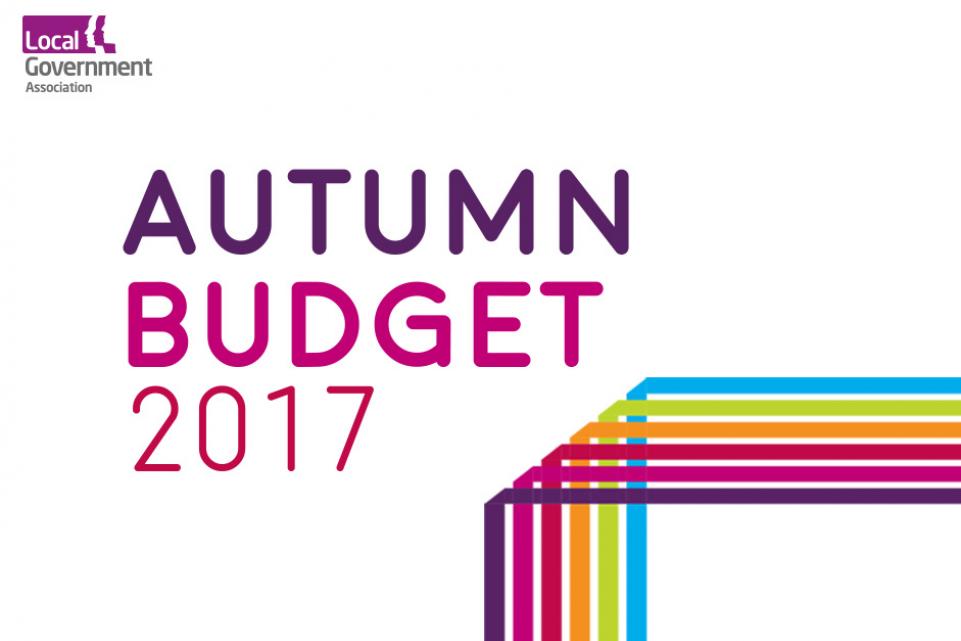Each year local authorities’ core funding allocations for the forthcoming financial year are announced by Government in the provisional local government finance settlement, usually in December. Following consultation, allocations are confirmed in the final settlement, usually in February.
The money local government has to operate services is running out fast and councils face an overall £5.8 billion funding gap in just two years. Our submission to the 2017 Autumn Budget set out what powers and funding we wanted to be awarded to local government to ensure that councils can continue to lead their local areas.
The majority of these demands were not met by the Autumn Budget meaning that the Government needs to use the upcoming Local Government Finance Settlement to set out its plan for how it will fund local services both now and in the future. We remain clear that local government as a whole must be able to keep every penny of business rates collected to plug funding gaps while a fairer system of distributing funding between councils is needed.
Only with fairer funding and greater freedom from central government to take decisions over vital services in their area can local government generate economic growth, build homes, strengthen communities, and protect vulnerable people in all parts of the country.
LGA responds to the Local Government Finance Settlement
Councils responds to Local Government Finance Settlement (provisional)
Provisional Local Government Finance Settlement 2018/19 – On the Day Briefing
The 2018-19 Provisional Local Government Finance Settlement - response
LGA responds to latest Government homelessness statistics
LGA responds to latest Government Right to Buy sales stats
500 child protection investigations carried out every single day
Council funding to be further cut in half over next two years - LGA warns
LGA responds to Government care cap announcement
Funding sustainable services
• Local services face a funding gap of at least £5.8 billion by 2019/20.
• There is an immediate £1.3 billion pressure to stabilise the adult social care provider market today.
• Between 2010 and 2020, local authorities will have seen reductions of £16 billion to core Government funding. Councils drew down more than £600 million in reserves in 2016/17.
• More than 170,000 children were subject to child protection enquiries in 2015/16.5
• By 2025 there will be another 350,000 vulnerable or elderly people needing high levels of care.
• In 2017/18 council budgets for the care and support of working age adults exceed budgets for care and support for older people by £1 billion while the reverse was the case in 2010/11.
• The last six years have seen a 44 per cent increase in the number of homeless households needing accommodation and a 102 per cent increase in rough sleeping.
• Due to the range of services we provide, local government has a significant number of lower paid staff in lower skilled roles, leading to a more significant impact of the National Living Wage than other parts of the public sector.
• The Government should meet the £5.8 billion funding gap facing existing local services by 2019/20 through the settlement.
• The immediate £1.3 billion pressure to stabilise the adult social care provider market must be met today, either through further business rates retention or grant funding.
• Beyond current services, other unfunded pressures facing local government, such as costs of essential refurbishing of council-owned tower blocks to reduce their fire risk or pay pressures due to the National Living Wage increases and national public sector pay policy, should be met by the Government in full.
Local government finance reform
• The value of business rates kept by the Government is estimated to be £13 billion by 2019/20. Local services face a funding gap of at least £5.8 billion by 2019/20 and a £1.3 billion pressure to stabilise the adult social care provider market today.
• Funding for local council tax support schemes will have been cut by almost £2 billion by the end of the decade since 2012.
• The cost of the nationally prescribed council tax single person's discount is £2.6 billion.
• It can cost up to £1 million to hold a council tax referendum on a bill increase of as little as 40 pence a week.
• We would like to continue working with the Government on further retention of business rates, but the extra income should go towards meeting the local government funding gap of £5.8 billion by 2019/20 and not funding additional responsibilities.
• In addition the immediate £1.3 billion pressure to stabilise the adult social care provider market must be met today, either through further business rates retention or grant funding.
• The Government should publish its consultation on progress of the Fair Funding Review.
• The Government should announce further business rates retention pilots at the draft settlement.
• As a result of the delays to local government finance reforms, and the change in macroeconomic conditions since the four-year settlement offer was made, the Government should provide further funding to all councils to help manage medium-term uncertainty.
• Council tax should be made a truly local tax. There should be increased local control over discounts and referendum limits should be abolished.
Reforming public services
• More than 30 councils across the country have improved their rating in recent years, even after Ofsted "raised the bar" for their children's services inspections in 2013.
• Public health grant funding is being reduced by £531 million between April 2015 and April 2020.
• The benefits of the fire service undertaking joint work with police, ambulance services and local authorities has the potential to deliver a return on investment of up to £14.40 per £1 invested.
• The Government should cancel future reductions to public health grant and return funding that was cut since April 2015.
• We call on the Government to devolve a proportion of the Department for Education's (DfE) £300 million budget for improvement and innovation in children's services to councils.
• Pay pressures in councils and the fire and rescue service should be funded by the Government in full, alongside investment in new ways of working.
Inclusive economic growth
• We need to build 230,000 to 250,000 homes a year to keep up with demand. The last time the country built more than 250,000 homes in a year, in the 1970s, local government built around 40 per cent of them.
• Young people today are half as likely to be on the housing ladder as they were 20 years ago.
• Provide councils with the financial flexibilities to build new homes by devolving funding, localising planning fees and removing the cap on HRA borrowing.
• Do not increase the threshold of housing growth for the new homes bonus for any local authority.


